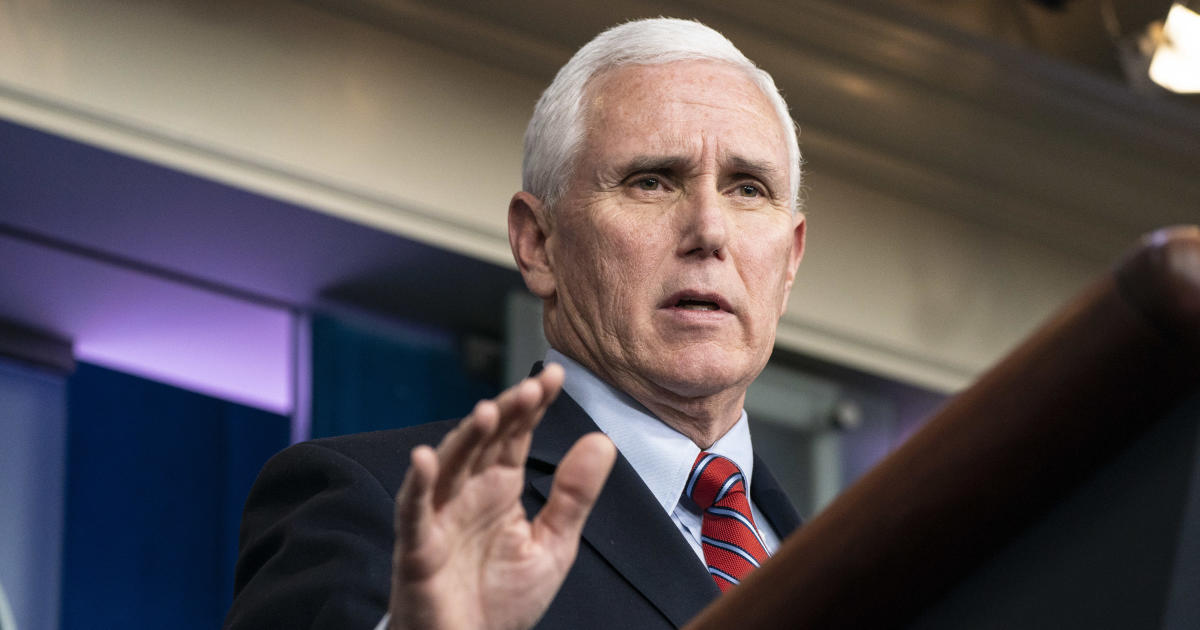The vice presidential debate is set to get underway Wednesday evening with extra COVID-19 safety measures in place, but one doctor is questioning whether that will be enough as the virus outbreak at the White House continues to grow.
“More layers of protection are so important,” Dr. Neeta Ogden said Wednesday on CBSN. “It’s not just Pence, it’s the team that he’s traveling with, it’s the exposure on a daily basis.”
The vice president’s physician announced that Pence took a PCR coronavirus test Tuesday afternoon that came back negative. And the White House said Pence and his wife both tested negative again Wednesday in Salt Lake City, where the debate is being held. But as Ogden points out, test results only reflect a specific moment in time and don’t guarantee an infection won’t develop later.
“Just because he’s had a daily antigen test, intermittent PCR tests, is meaningless if he continues to interact with other people on his team or anybody else in the world — we don’t know what their COVID status is,” she said.
Since President Trump’s COVID-19 diagnosis last week, a growing number of staffers within the White House, and several members of the press corps, have tested positive for the virus. Senior adviser to the president Stephen Miller, press secretary Kayleigh McEnany, three of her deputies and Trump 2020 campaign manager Bill Stepien are just some of those close to the executive branch that have tested positive. Stephen Miller’s wife, Katie Miller, who serves as Pence’s communications director, tested negative on Tuesday; she had coronavirus back in May, but she left Salt Lake City out of an abundance of caution.
“There are a lot more risk factors here than just Pence has had negative tests,” Ogden said.
After initial pushback from Pence’s team, extra precautions have been taken at the debate site to address those risk factors, including plexiglass barriers and 12 feet of separation between the candidates on stage.
Ogden called the Trump-Pence campaign’s resistance to such measures “ridiculous.” She said the plexiglass and the distance are just “two pieces” of a puzzle.
“We need to make sure there’s good ventilation in that auditorium — ideally this debate should have been over zoom or should’ve been outside,” she said. “I think there’s still definitely a risk here.”
